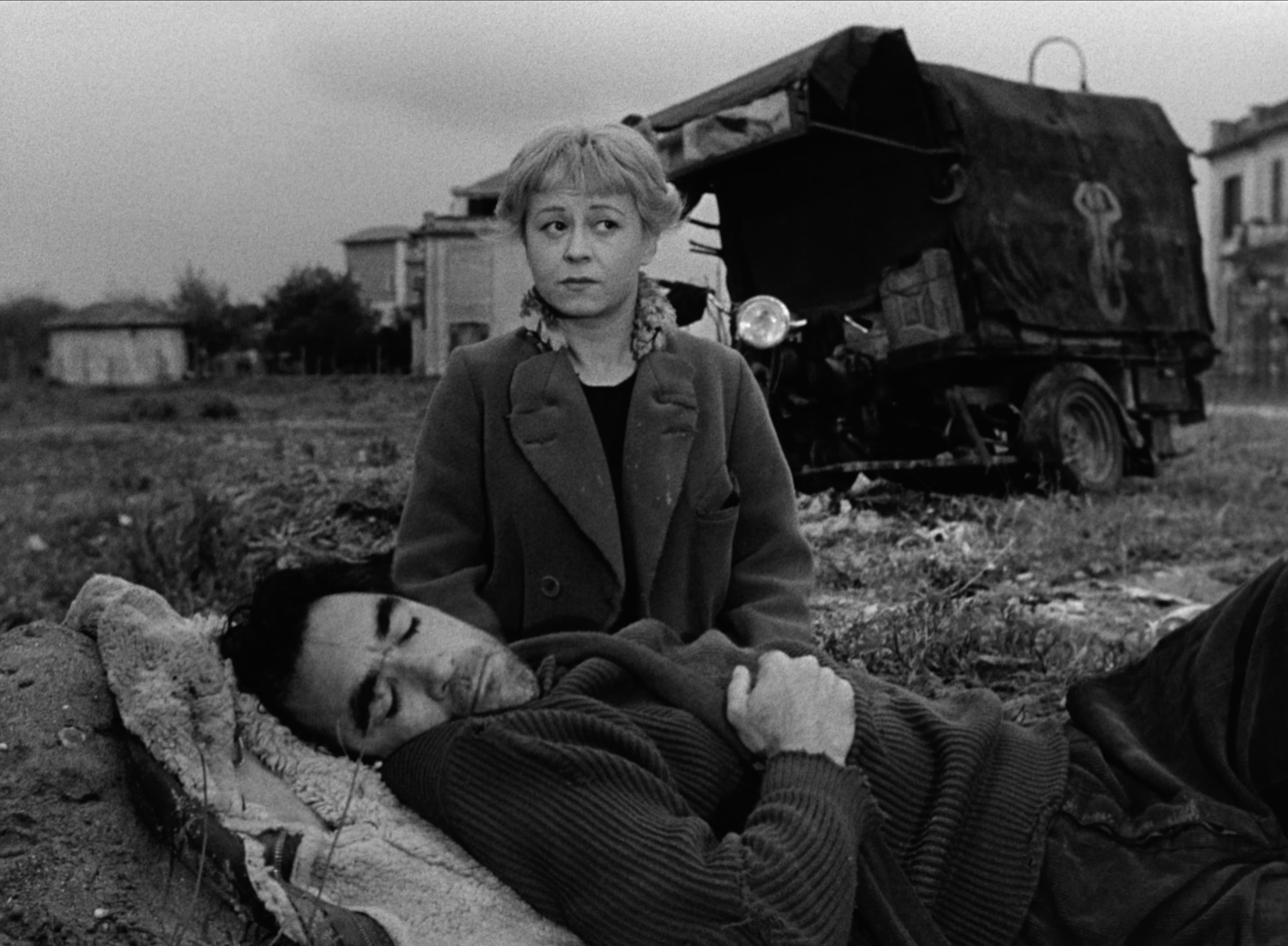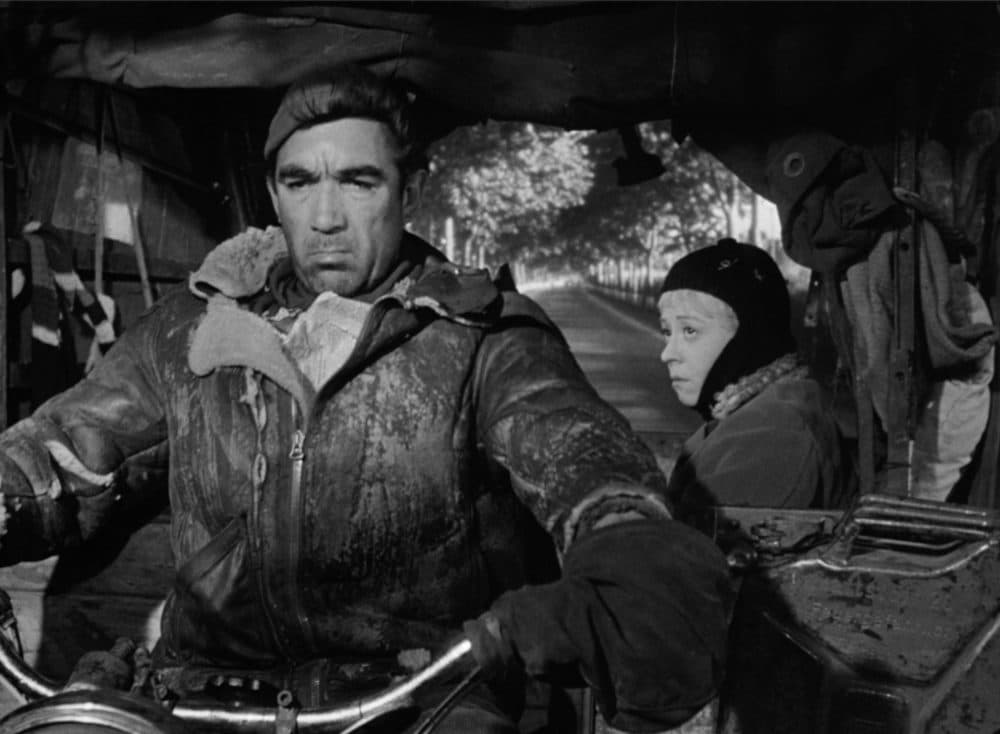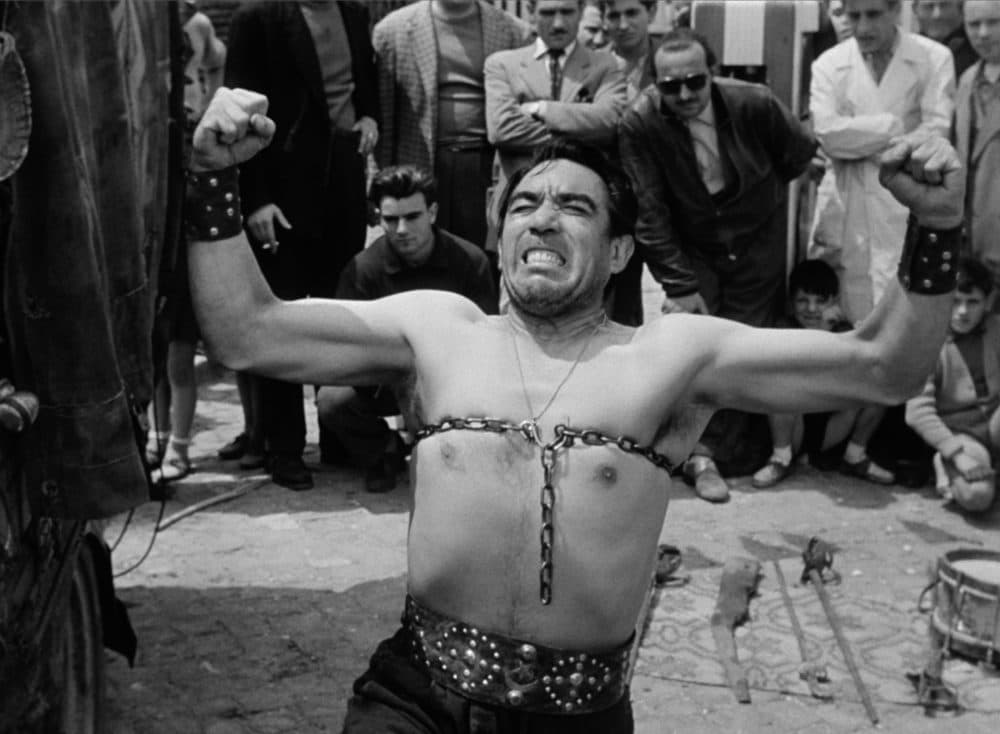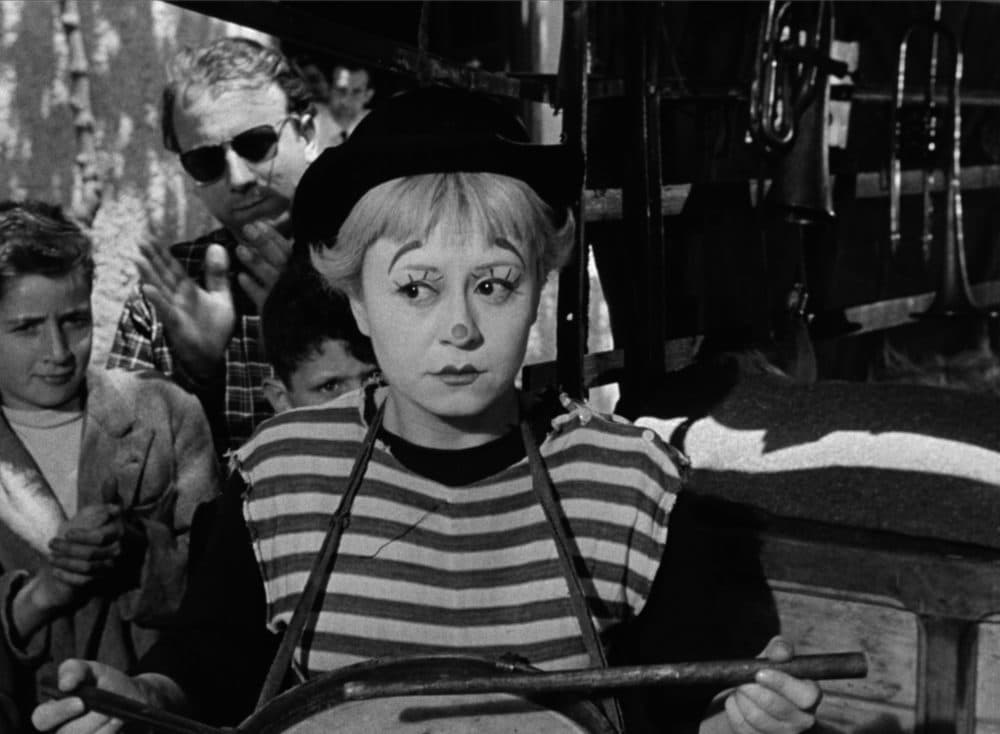Advertisement
Commentary
Feeling Election Day Stress? Find Solace In Federico Fellini's 'La Strada'

None of us are having an easy time of it right now. After spending the weekend with knots in my stomach watching throngs of sneering Trump supporters blocking highways and closing down bridges, I realized that not since the days immediately following 9/11 have I felt plagued by more terrifying uncertainty regarding what comes next. Even the most consequential and contentious elections of my lifetime promised with them peaceful transitions of power, whereas this week offers no such guarantees. It’s debilitating, really, if you sit around thinking about it for too long. And you shouldn’t, this is no way to live your life. But of course, thanks to the coronavirus, it’s not like we can go anywhere or do much else right now besides stay at home and doomscroll through our social media feeds while waiting for the other shoe to drop.
So come away with me instead to a small seaside village in postwar Italy. (The news will still be here when we get back.) The Coolidge Corner Theatre’s Virtual Screening Room has just started streaming a new 4K restoration of Federico Fellini’s 1954 masterpiece “La Strada” in celebration of the maestro’s centenary. One of the greatest of all films, this haunting, heartfelt fable feels like a balm during these troubled times, its essential, insistent humanity arriving as a reminder right when we need it most. Besides, a good cry can be cathartic when you’re already a nervous wreck.

The storyline is simplicity itself, with the slightly addled peasant girl Gelsomina (Giulietta Masina, the director’s wife) sold by her widowed mother to traveling carnival strongman Zampanò, played so unforgettably by Anthony Quinn. They journey together through a bombed-out countryside ravaged by war, performing for poverty-stricken locals. The fumbling, inarticulate Zampanò cruelly beats and brutalizes Gelsomina, to which she responds with forgiveness and unconditional adoration. As played by the ethereal, childlike Masina, she’s an almost supernatural embodiment of God’s grace, but what some men fear most is being loved.
Upon joining up with a larger circus their dysfunctional dynamic is disrupted by Il Matto, “The Fool” (Richard Baseheart), a tightrope walker and inveterate wise guy. He nurtures Gelsomina’s gifts as a natural-born clown but can’t help himself from taunting and tormenting Zampanò, with ultimately tragic results. I’ve read theories that this central triangle is supposed to represent the three sides of the human condition — with Il Matto the mind, Zampanò the body and Gelsomina the spirit — but I also think that a reason for the lingering power of “La Strada” is that it isn’t quite so easy to pin down. The gritty depiction of postwar Italy is suffused with a slight air of magic and mystery, a lightness that would in later films blossom into the brand of surrealism dubbed “Fellini-esque.”
At the time, this stylization was seen by some as a betrayal of the documentary neorealism espoused by the largely Marxist Italian cinema movement. In fact, when “La Strada” won the Golden Lion at the Venice Film Festival over Luchino Visconti’s “Senso,” the latter director’s assistant, Franco Zeffirelli (who went on to become a famous filmmaker himself) blew a whistle throughout Fellini’s acceptance speech until Fellini’s own assistant director, Moraldo Rossi, walked over and decked him, starting a brawl. I suppose the last laugh was had by “La Strada,” when two years later it won the first-ever Academy Award for Best Foreign Language Film without any punches being thrown.

It was during that trip to Hollywood to accept the Oscar that Fellini met with Walt Disney, who was briefly interested in making a Gelsomina cartoon. This was presumably the highest compliment imaginable for a character conceived — in the director’s own words — as a cross between Saint Rita and Mickey Mouse, but the story goes that Fellini didn’t like the idea of Gelsomina dolls being sold in stores. (There is something ickily blasphemous about such a concept.) So beloved was the character that decades later, when Masina’s purse was snatched on the streets of Rome by a gang of scooter-riding hoodlums, it was returned days later with all its contents intact. The thieves included a note reading, “Excuse us, Gelsomina.”
Elements of “La Strada” have been repurposed throughout cinema history, most recently in stealth remakes like Woody Allen’s “Sweet and Lowdown,” starring Sean Penn as a strongman jazz guitarist and Samantha Morton as his mute muse, and also James Gray’s “The Immigrant,” in which the action was moved to Ellis Island and the central trio played by Joaquin Phoenix, Marion Cotillard and Jeremy Renner. In his characteristically effusive introduction to the Criterion Collection disc, Martin Scorsese confesses that all his collaborations with Robert De Niro are to some extent inspired by Zampanò, with “Raging Bull” being only the most obvious example.

After all, who could love such a brute? He’s an ugly, stupid animal who does unforgivable things and yet in Quinn’s performance we see the sorrow behind this ogre’s eyes, plus the pathos of his sorry excuse for a sideshow act. (Fellini famously made the actor reshoot an entire day’s footage because he was being too entertaining. Zampanò’s tired schtick is intended to be just that.) But Gelsomina’s compassion extends to all of God’s creatures, even this monster. So many Fellini movies are about men who foolishly turn away from love, and a lot of them end like this one, with the men looking out at the sea and contemplating all that has been lost.
Revisiting “La Strada” provided enormous comfort to me during this particularly fraught moment, a much-needed reminder of beauty and grace at a time characterized by anything but. You can’t watch cable news all day, and this is an ideal Election Day escape for anyone else who feels like they want to run away and join the circus.
“La Strada” is currently streaming at the Coolidge Corner Theatre’s Virtual Screening Room.
